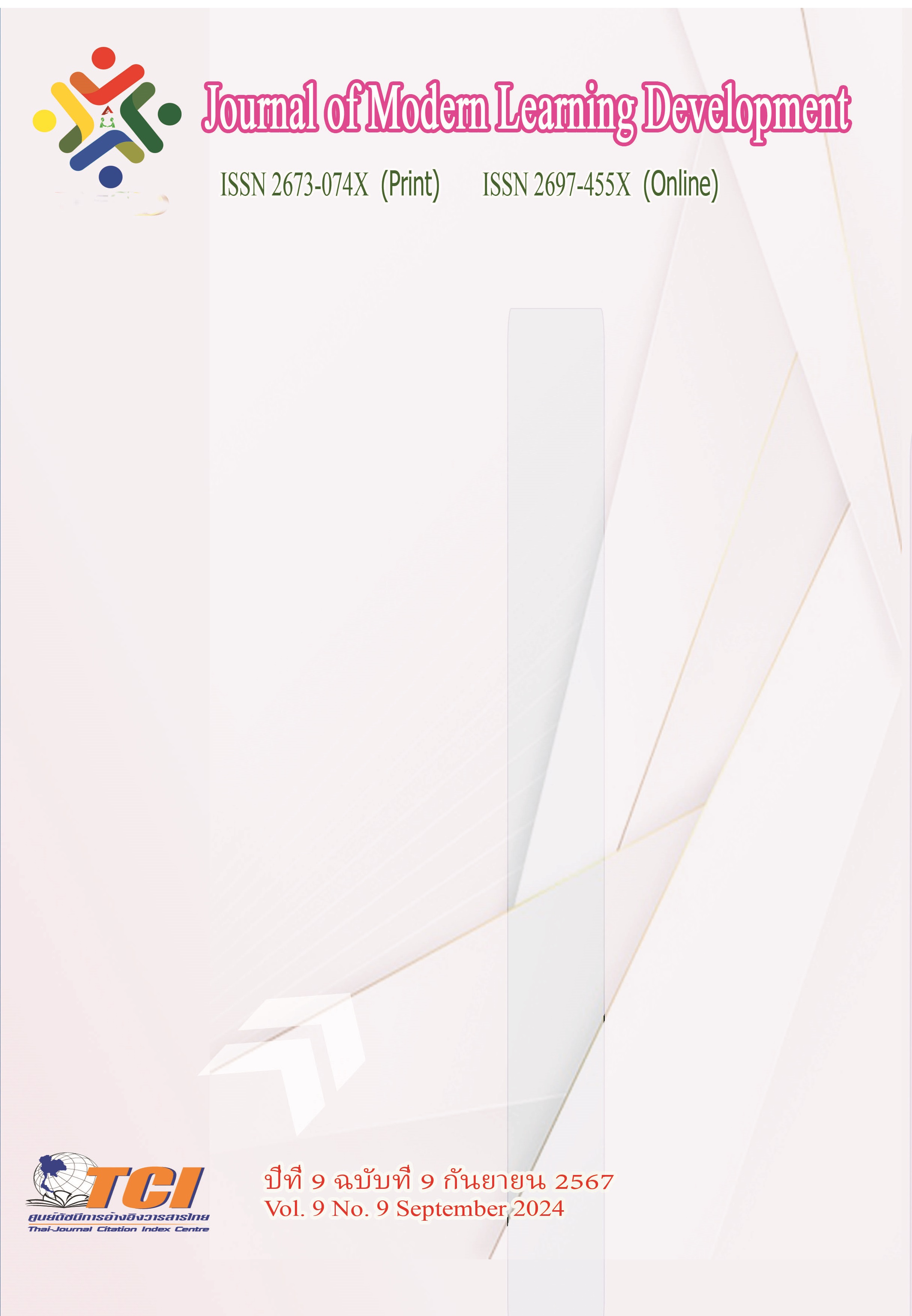Servant Leadership Development of Administrators in Private Universities Under Jilin Province
Main Article Content
Abstract
The objectives of this research were: (1) to explore the components of servant leadership development of administrators in private universities under Jilin province. (2) to propose guidelines for servant leadership development of administrators in private universities under Jilin province.
The research method was a mixed method, including qualitative research and quantitative research. Population were administrators and teachers from 12 private universities under Jilin Province who work in academic year 2023, total 725 people. The sample were administrators and teachers, total 297 people, with stratified random sampling method. Determined sample size with Krejcie and Morgan's table. The 9 key informants for in-depth interview included presidents, administrators and vice professors. The key informant for focus group discussion, total 7 experts. Both of them were chosen by purposive sampling method. The instruments used for data collection were in-depth interview form, five-point rating scale questionnaires and focus group discussion form. The statistics used for data analysis included frequency, percentage, mean, Standard Deviation, Exploratory Factor Analysis, and content analysis was employed.
Research findings were: (1)the components of servant leadership of administrators in private universities under Jilin Province including 10 components of servant leadership for administrators in private universities under Jilin province. Consisted of: Emotional Support, Ethics of Behaviour, Sense of Social Responsibility, Demand Response, Efficient Support, Facilitating Growth, Conceptual Skills, Wisdom, Intrapersonal Tolerance, Altruism. And (2) servant leadership guidelines for administrators in private universities under Jilin Province, including 10 guidelines.
Article Details
References
Chiniara, M., & Bentein, K. (2016). Linking servant leadership to individual performance: Differentiating the mediating role of autonomy, competence and relatedness need satisfaction. The Leadership Quarterly, 27 (1).
Greenleaf, R. K. (1970). The Servant as Leader, The Robert K', Greenleaf Center, Indianapolis, IN.
Greenleaf, R.K. (ed.) (1977). Servant leadership: A journey into the nature of legitimate power and greatness. New York: Paulist Press.
Hammond, M., Cleveland, J. N., O'Neill, J. W., Stawski, R. S., & Jones Tate,A. (2015) Mediators of transformational leadership and the work-family relationship. Journal of Managerial Psychology, 30 (4).
Li, Y., Li, D., Tu, Y., & Liu, J. (2018). How and when servant leadership enhances life satisfaction. Personnel Review, 47 (5).
Liao, Y., Yang, Z., Wang, M., & Kwan, H. K. (2016) Work–family effects of LMX: the moderating role of work–home segmentation preferences. The Leadership Quarterly. 27 (4).
Newman, A., Schwarz, G., Cooper, B., & Sendjaya, S. (2017). How servant leadership influences organizational citizenship behavior: The roles of LMX, empowerment, and proactive personality. Journal of Business Ethics, 145 (1).
Tang, G., Kwan, H. K., Zhang, D., & Zhu, Z. (2016) Work–family effects of servant leadership: The roles of emotional exhaustion and personal learning. Journal of Business Ethics. 137 (2).
Yang, Z., Zhang, H., Kwan, H. K., & Chen, S. (2018) Crossover effects of servant Leadership and job social support on employee spouses: The mediating role of employee organization-based self-esteem. Journal of Business Ethics. 147 (3).
Zhang, S., & Tu, Y. (2018) Cross-domain effects of ethical leadership on employee family and life satisfaction: The moderating role of family-supportive supervisor behaviors. Journal of Business Ethics. 152 (4).
Zhang, H., Kwong Kwan, H., Everett, A. M., & Jian, Z. (2012) Servant leadership,organizational identification, and work-to-family enrichment: The moderating role of work climate for sharing family concerns. Human Resource Management. 51 (5).


